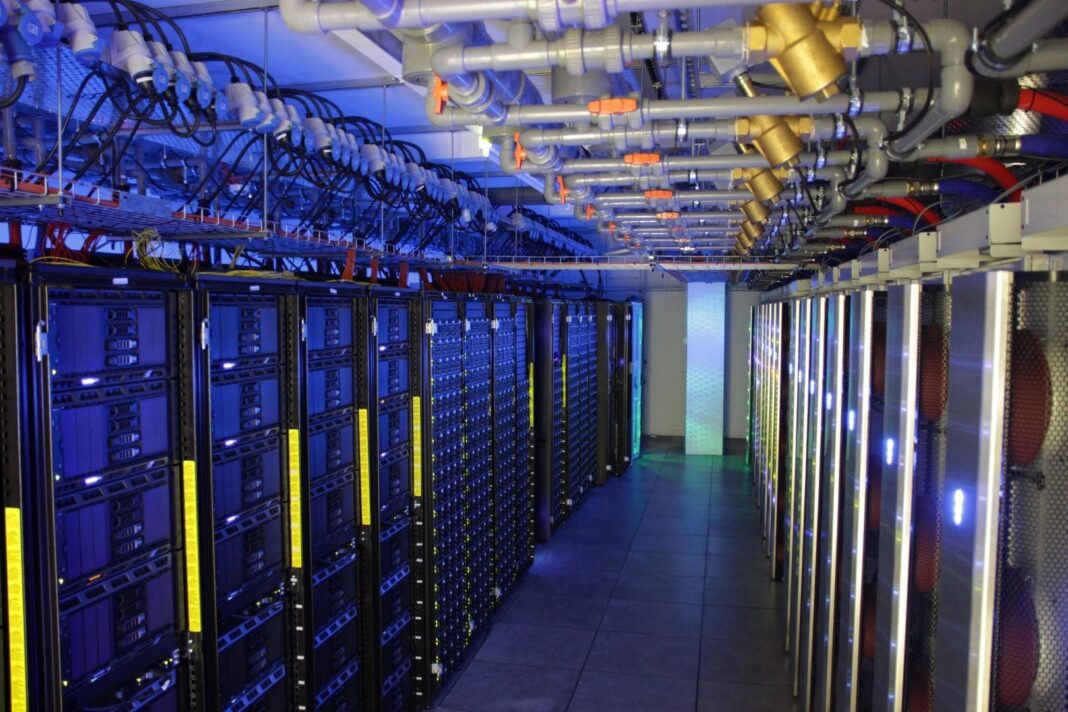Technology has become part of our daily routines. Whether we use smartphones, stream videos, or navigate maps, advanced systems are working behind the scenes to make it all possible. One of these systems is high-performance computing.
In this blog, we’ll explore how high-performance computing supports the tech you use every day. From powering your favorite apps to making smarter gadgets, it has become the silent backbone of modern life. Let’s dive into how it works and why it matters.
Driving Everyday Tech with High-Performance Computing
High-performance computing plays a bigger role in our lives than we might think. It works behind the scenes to ensure speed, accuracy, and reliability in various technologies. When you browse the internet, stream a show, or even use voice assistants, high-performance computing steps in to handle complex tasks quickly.
Companies rely on these systems to process vast amounts of data in real-time, giving you smoother and faster experiences.
How It Improves Your Daily Life
Everyday activities like using maps, shopping online, or watching videos feel seamless because of HPC. Let’s break this down further.
Streaming Services: Platforms like Netflix or YouTube analyze what you watch and recommend new content instantly.
Smart Assistants: Devices like Alexa or Siri process your commands using powerful computing systems.
E-commerce Websites: Online stores use it to recommend products based on your browsing history.
Without high-performance computing, these conveniences would not be as quick or reliable.
Making Smartphones Smarter
Your smartphone is more than just a device; it’s a mini-computer in your pocket. HPC ensures that your phone handles tasks like video editing, gaming, or even taking better photos.
Features like facial recognition, predictive text, and app multitasking depend on fast processing speeds. When you use apps for real-time translations or weather forecasts, high-performance computing manages the complex data behind those features.
Supporting Video Games and Graphics
Gamers benefit from high-performance computing every time they pick up a controller. Modern video games require advanced graphics and quick response times. High-performance computing makes this possible by rendering visuals and processing actions instantly.
It also supports augmented reality (AR) and virtual reality (VR), taking gaming to the next level. Imagine playing a game where you can explore realistic virtual worlds without lag. That’s the magic of high-performance computing.
How It Enhances Online Shopping
Online shopping has changed the way we buy things. Behind every recommendation, search result, and quick checkout process is a powerful computing system.
HPC allows e-commerce platforms to process thousands of transactions at once. It also helps them predict trends, personalize your shopping experience, and ensure websites load quickly.
Improving Navigation Apps
When you use a navigation app like Google Maps, you rely on real-time data. These apps calculate routes, check traffic, and provide updates within seconds. High-performance computing makes this possible.
It processes vast amounts of data from satellites, sensors, and users to give you accurate directions. Without this level of computing, you’d still be unfolding paper maps.
Powering Artificial Intelligence
Artificial intelligence has become part of our lives, whether through voice assistants, chatbots, or personalized recommendations. High-performance computing is what makes AI systems efficient and responsive.
For example, when you ask a smart speaker to play a song or set a timer, it processes your voice command using AI and delivers an instant response. This speed and accuracy wouldn’t be possible without advanced computing systems.
Improving Healthcare Technology
The impact of high-performance computing extends beyond entertainment and shopping. It also plays a vital role in healthcare. From diagnostics to treatment planning, it supports life-saving technologies.
Hospitals use it to process medical images like MRIs or CT scans faster and more accurately. It also powers wearable health devices that track your heart rate, sleep patterns, and more. These insights help doctors provide better care.
Transforming Education
Education has become more digital, especially with the rise of online learning. High-performance computing supports platforms that provide interactive lessons, virtual labs, and instant grading.
It also enables simulations for subjects like physics, chemistry, or engineering, giving students hands-on experience in a virtual environment. This makes learning more engaging and accessible.
Making Smart Homes Smarter
Smart home devices, like thermostats, lights, and security cameras, rely on high-performance computing. These devices collect and process data to adapt to your preferences.
For example, a smart thermostat learns your daily routine and adjusts the temperature automatically.
Security cameras analyze footage in real-time to alert you to any unusual activity. High-performance computing ensures these devices work seamlessly.
The Role in Weather Forecasting
Accurate weather forecasts depend on analyzing massive amounts of data from satellites, sensors, and historical records. High-performance computing processes this information quickly to predict weather patterns.
This not only helps you plan your day but also aids in disaster management. Authorities can prepare for storms, floods, or other natural events well in advance.
Driving Innovation in Autonomous Vehicles
Self-driving cars are no longer just a concept. High-performance computing is helping make them a reality. These vehicles process data from cameras, sensors, and maps to navigate roads safely.
The computing systems in these cars can make split-second decisions, like when to brake or turn. This level of precision wouldn’t be possible without advanced computing.
Helping Businesses Grow
Businesses use high-performance computing to stay competitive. It supports everything from supply chain management to customer service.
For example:
- Retailers use it to predict product demand and manage inventory.
- Banks rely on it for secure transactions and fraud detection.
- Marketing teams analyze customer data to create targeted campaigns.
By improving efficiency and reducing costs, high-performance computing helps businesses grow.
Making a Greener World
High-performance computing also contributes to sustainability efforts. Data centers and tech companies are finding ways to reduce energy consumption.
Advanced computing systems help optimize energy use in industries like transportation, agriculture, and manufacturing. This focus on efficiency benefits both businesses and the environment, creating a greener world for future generations.
The Future of High-Performance Computing
The journey of high-performance computing has only just begun. As technology continues to evolve, it will unlock even more possibilities. From smarter cities to breakthroughs in medicine, the future looks promising.
With advancements like quantum computing on the horizon, we can expect even faster and more powerful systems. These will further shape how we live, work, and interact with technology.
Conclusion
High-performance computing might not be visible, but its impact is everywhere. It powers the tech we use every day, from smartphones and streaming services to healthcare and education.
As it continues to evolve, high-performance computing will play an even bigger role in shaping the future. By driving innovation and improving lives, it has quietly become the backbone of modern technology. The next time you use your favorite gadget or app, remember the powerful systems working behind the scenes to make it all possible.




